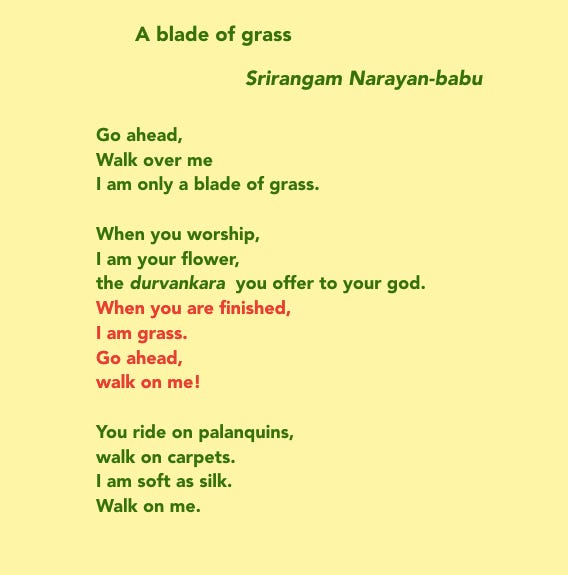Today’s poem is one of the earliest poems in telugu with the plight of the untouchables at the centre. Srirangam Narayana-babu (1906-1962) invokes Hindu mythology and Brahmin rituals only to turn them on their head and reveal the bigotry that is at the core of caste-based oppression and hegemony of the upper castes - a hegemony that has survived for centuries. Like the other telugu poems that I have shared, there is a fierce sense of resistance in the poem, not despair. The poet worked closely with Sri Sri and was part of the left progressive movement of writers in telugu literature.
This is a great example of a poem which follows a narrative arc, and allows for transformation and growth in the persona’s sensibility through the course of the poem itself. This transformation is marked by a steady dose of irony, and a close look at the real ways in which discrimination plays itself out, in the historical reaffirmation of a Brahminised mythology though everyday practices. These subtle allusions make a strong impression in the quicksand of belief that legitimises such inhuman practices of “walking over” the Dalit community.
The end is a tribute to Azad, a young leader whose voice has amplified the resistance against the CAA/NPR/NRC in India. This fight is larger than just this bill, and what it needs is a fulcrum of strategic alliances across communities and groups. It is hopeful to see such alliances emerging across the country.






